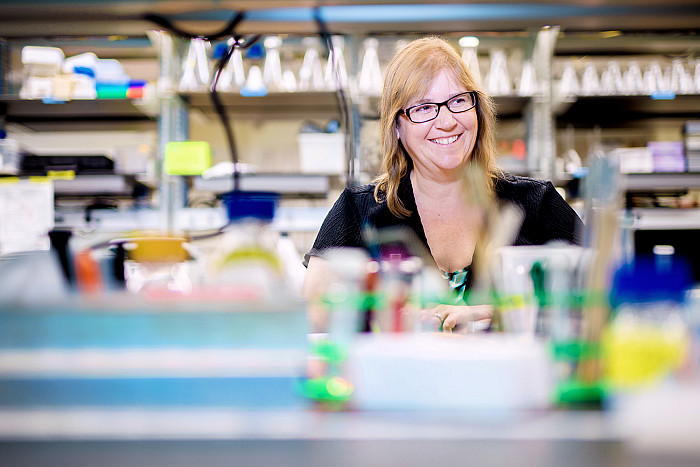Ursinus-led NSF Grant Supports Faculty Development at Underserved Institutions
Professor of Biology Rebecca Roberts is leading a multi-institutional effort to help 24 faculty at under-resourced and minority-serving institutions build active learning communities in their classrooms.
Course-based undergraduate research experiences, or CURES, are vital to promoting academic success and improving retention, particularly among underrepresented students. But oftentimes, faculty at under-resourced institutions don’t receive the support they need to implement such programs.
Ursinus College Professor of Biology Rebecca Roberts is hoping to change that.
Roberts and collaborators from Grand View University (Iowa) and Hampden-Sydney College (Virginia) have been awarded a National Science Foundation grant that will directly support the development of 24 faculty focused on those from minority-serving institutions and two-year community colleges.
The grant will allow the instructors to participate in a workshop on building active learning communities in molecular life science, held in conjunction with the DiscoverBMB meeting of the American Society for Biochemistry and Molecular Biology (ASBMB) from March 23-26 in San Antonio, Tex.
Roberts said faculty at under-resourced colleges and universities are eager to integrate course-based research practices into their teaching repertoires, but they don’t have the means to invest in many professional development opportunities. This effort dovetails with another NSF-funded initiative that Roberts is co-leading, one in which she is identifying barriers faculty face in implementing CURES in their classrooms.
“We’ve proven that CURES improve retention and increase academic success, and so now we need to teach our teachers and build a more diverse pipeline of students and instructors in STEM,” Roberts said.
The instructors that participate in the workshop will bring these pedagogical ideas back to their respective classrooms, thereby strengthening the ways in which STEM education is provided at those institutions.
“I’m always proud of the research experiences that we provide our students, but it’s really satisfying to be able to provide more resources for teachers so that they can better help their students,” Roberts said.
